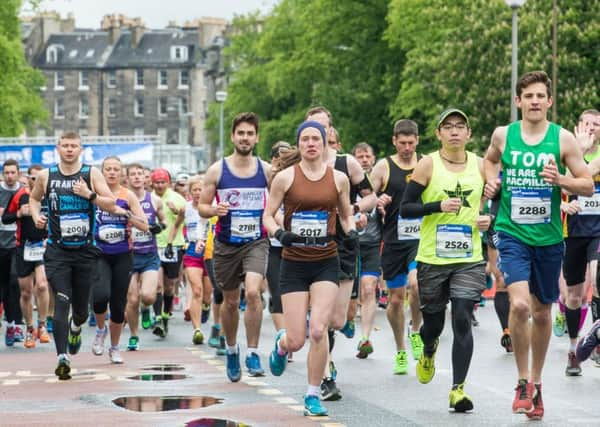What happens to the body when you run a marathon?


This week, Dr Angus Hunter, senior lecturer and director of research at the University of Stirling’s School of Sport, explains what happens when we attempt to run a marathon.
Runners taking on a 26-mile course can expect to burn a day’s calories in the process. Then there’s the prospect of cramps, dizziness and dehydration. It’s not a challenge to be undertaken lightly.
Advertisement
Hide AdAdvertisement
Hide AdIs running a marathon within the capabilities of all able-bodied people, presuming they undertake enough advanced training?
Dr Hunter: “It is within the capabilities of most healthy individuals – as long as they progress their training appropriately. There are instances of people going into marathons ill-prepared. But the bottom line is, as long as there isn’t a cut-off time, you can still walk the course. Most people have the ability to walk round it. If people pace themselves accordingly they should be able to go out and enjoy it.”
What kind of stresses does the body experience during a marathon?
“In a marathon, the combination of intensity and duration will result in exercise-induced muscle damage (EIMD) of all the involved muscles, which results in exercise-induced muscle damage. Short term damage of the heart is also evident from increased cardiac troponin found in the blood [the same biomarker becomes elevated following a heart attack]. However, it’s important to note that this doesn’t result in long-term complications.”
Which muscles in particular are worked hardest?
“Evidence suggests that the quadriceps and calf muscles are fatigued to a similar amount following a marathon.”
How does the body cope with such continuous exertion?
“Mainly through appropriate pacing, gained through experience, and adequate hydration and nutritional strategies to meet the body’s requirements.”
Why is it so important to pace yourself when running a marathon and not make a speedy start?
“If you push yourself from the start, your muscles become quite acidic early on and it’s difficult to then change that. That causes impairment. Whereas if you start off slow, you end up clearing more lactate than you can produce, and your not getting this acidic build up. Over a marathon, your pH will generally drop throughout – but if you start off fast, you build up acidity, and that will impair the electrical signals that run from your brain to across your muscles.”